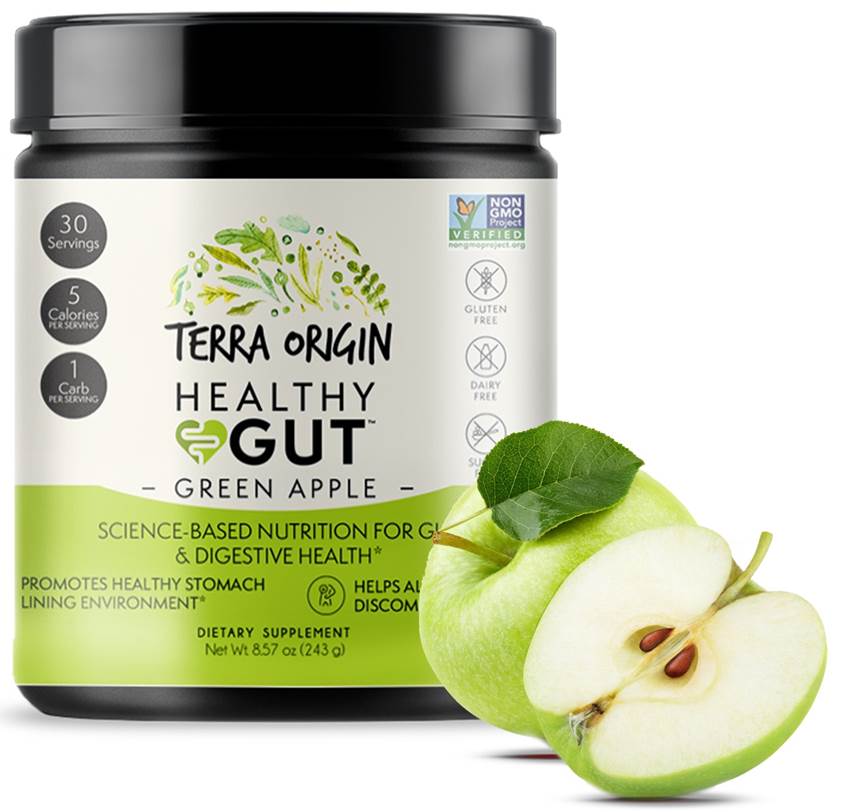Why a Gut Health Supplement Should Be Part of Your Daily Routine
Why a Gut Health Supplement Should Be Part of Your Daily Routine
Blog Article
Discover the Key to Food Digestion and Resistance With Digestive Tract Health Support

Comprehending Intestine Health
Comprehending intestine health is vital for overall wellness, as it plays a considerable duty in digestion, immunity, and even psychological wellness. The gut, making up the intestinal system, is in charge of breaking down food, taking in nutrients, and getting rid of waste. A well balanced intestine environment guarantees effective food digestion, permitting the body to make use of nutrients effectively.
Moreover, gut health and wellness substantially influences the body immune system. The intestine houses a significant portion of the body's immune cells, and a healthy gut can help fend off pathogens and reduce inflammation. Disruptions in gut health can lead to an over active immune feedback, possibly adding to autoimmune problems and allergic reactions.
Furthermore, the digestive tract is commonly described as the "second brain" due to the gut-brain axis, a complex interaction network connecting the intestine and the mind. This link affects state of mind, cognition, and emotional well-being. Concerns such as dysbiosis, identified by a discrepancy in digestive tract bacteria, have actually been connected with psychological health conditions, consisting of stress and anxiety and anxiety.
The Gut Microbiome Explained

The digestive tract microbiome, a diverse area of bacteria staying in the intestinal system, plays a critical duty in preserving digestion wellness and overall health. Making up trillions of bacteria, infections, fungi, and various other microbes, this complicated environment help in the digestion of food, the synthesis of crucial nutrients, and the guideline of metabolic processes.
Each person's gut microbiome is special, influenced by aspects such as diet, way of life, genetics, and environmental direct exposures. A balanced microbiome sustains optimum digestion by damaging down complex carbohydrates, generating short-chain fatty acids, and promoting the absorption of nutrients. Conversely, an inequality, frequently described as dysbiosis, can lead to digestion problems, including cranky digestive tract disorder (IBS) and inflammatory bowel illness (IBD)
Study has demonstrated that a diverse microbiome is related to better health results, emphasizing the importance of dietary options in supporting these microbes. Foods abundant in fiber, probiotics, and prebiotics, such as fruits, vegetables, and fermented products, can promote a healthy microbiome. Comprehending the intestine microbiome is essential for developing targeted interventions focused on enhancing digestion wellness and protecting against gastrointestinal diseases.

Connection In Between Digestion and Resistance
A durable connection exists between food digestion and immunity, highlighting the important duty of the gut in preserving total health. The intestinal system is home to trillions of microorganisms that develop the intestine microbiome, which significantly influences both immune actions and digestive system processes. This complicated environment help in damaging down food, absorbing nutrients, and offering necessary metabolites that sustain immune feature.
When food digestion is reliable, the digestive tract obstacle stays undamaged, protecting against harmful pathogens from going into the blood stream (gut health supplement). On the other hand, bad food digestion can cause an inequality in the microbiome, causing dysbiosis, which has actually been linked to different health and wellness problems, including inflammatory conditions and autoimmune conditions. Around 70% of the immune system resides in the gut-associated lymphoid cells (GALT), which interacts carefully with the gut microbiome. This interplay ensures that the immune system can efficiently compare valuable and harmful compounds.
Tips for Sustaining Gut Health
Supporting digestive tract health is crucial for keeping both gastrointestinal effectiveness and a well-functioning body immune system. To promote optimum gut wellness, think about incorporating several practical methods into your everyday routine.
First, focus on hydration. Consuming sufficient water supports digestion and assists maintain the mucosal cellular lining of the intestinal tracts. In addition, regular physical task can enhance intestine motility and advertise a diverse microbiome.
Mindful eating practices are also necessary. Chewing food completely and eating slowly can help digestion and avoid over-eating, which might worry the gut. Managing tension with techniques such as reflection, yoga, or deep-breathing workouts can favorably affect intestine health, as tension is understood to interfere with digestion procedures.
Incorporating prebiotics and probiotics into your routine is an additional effective approach. While particular go to my blog foods will be reviewed later on, recognizing the relevance of these elements is vital. Prebiotics work as food for useful digestive tract germs, while probiotics present real-time useful organisms.
Finally, stay clear of extreme usage of prescription antibiotics, as they can disrupt the balance of digestive tract flora. By complying with these pointers, you can substantially add to the upkeep of a healthy and balanced digestive tract, which is vital for general health and wellness and vigor.
Foods That Promote Digestive Tract Wellness

Fermented foods, such as yogurt, kimchi, sauerkraut, and kefir, are abundant in probiotics, which are beneficial microorganisms that sustain digestive tract flora and boost food digestion. These foods can aid recover balance in the gut, particularly after antibiotic usage or digestive system disturbances.
Along with fermented options, prebiotic foods, such as garlic, onions, asparagus, and bananas, function as nutrition for these probiotics, promoting their growth and task. These soluble fibers support digestive tract motility and can reduce problems like irregular bowel movements.
In addition, including high-fiber foods, consisting of entire grains, beans, veggies, and fruits, is vital for maintaining a healthy gut. Fiber help in regular defecation and helps prevent gastrointestinal disorders.
Finally, omega-3 fatty acids found in fatty fish, flaxseeds, and walnuts have anti-inflammatory residential or commercial properties that can further support gut health and wellness. Highlighting these foods in your diet plan can lead to a durable digestion system and improved immune feature.
Final Thought
To conclude, prioritizing intestine health is important for maximizing food digestion and enhancing immunity. A balanced digestive tract microbiome, influenced by dietary options and way of living elements, plays an important function in nutrient absorption and swelling reduction. Incorporating fermented foods, prebiotics, and high-fiber choices, together with proper hydration and anxiety administration, can considerably advertise intestine wellness. By embracing click here to find out more these techniques, people can sustain total health and wellness and vigor, opening the potential advantages of a well-functioning gastrointestinal system.
Recognizing intestine health is critical for overall well-being, as it plays a considerable duty in digestion, immunity, and even psychological wellness. The gut houses a substantial portion of the body's immune cells, and a healthy digestive tract can aid fend off microorganisms and minimize inflammation.In addition, the intestine is usually referred to as the "second mind" due to the gut-brain axis, an intricate communication network connecting the intestine and the brain.A durable connection exists in between digestion and immunity, highlighting the critical function of the his comment is here gut in keeping total wellness.In final thought, focusing on intestine health is necessary for maximizing digestion and enhancing immunity.
Report this page